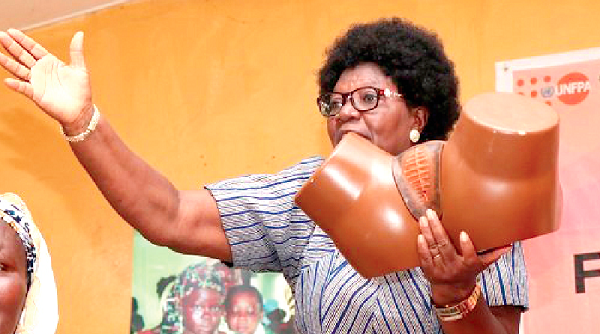
Fight against FGM must be sustained
Ghana joined the rest of the world to mark Zero Tolerance of Female Genital Mutilation (FGM) yesterday, February 6, 2022.
The day, instituted by the United Nations (UN) to draw global attention to the plight of millions of women and girls who suffer from this obnoxious practice, is to also consolidate international efforts at ending the practice.
Advertisement
The practice of FGM involves the partial or total removal of the external female genitalia for non-medical reasons.
In 2021, it was estimated that 4.16 million girls and women were at risk of FGM due to the COVID-19 disruption.
There could be as many as two million additional cases by 2030 that would otherwise have been averted.
In this country, available data indicate that the national prevalence of FGM stands at four per cent.
Unfortunately, the fact remains that the figure is highly underestimated, particularly when the practice is mostly done undercover.
Health implications
Experts say FGM exposes women and girls to a wide range of health issues. They include severe bleeding, emotional and psychological trauma, sexual health, risk in maternal and reproductive health, child birth complications as well as obstetric fistula.
At a forum at Pusiga in 2020, organised by the United Nations Population Fund (UNFPA), it came out that one of the victims was as young as six years, an indication that FGM is still rife in Ghana.
An FGM survivor who wishes to be anonymous condemned the act. She said FGM was an experience that no girl had to go through.
According to her, in her 15 years of marriage, she had never enjoyed sex, saying, “even though I engage in the act because I feel I have an obligation to fulfil as a married woman, I do not feel for sex and it is only my husband who demands for sex”.
She further narrated her ordeal during child birth; because her genitalia had been mutilated, it resulted in the loss of one of her children, and stressed that FGM should not be encouraged at all.
Marking FGM Day
This year, UNFPA is again at the forefront with activities to mark “Zero Tolerance of FGM Day”.
According to the UNFPA Country Representative, Mr Niyi Ojuolape, there would be a national stakeholder engagement in Accra.
Mr Ojuolape said media were powerful tools for advocacy, as such there would be radio discussions in the Upper East Region, specifically in Bawku and another one in the Upper West Region.
Deep culture
The practice of FGM is a deeply rooted cultural practice that some find it difficult to let go. However, for others, it is a trade. Excuses given are that the practice was passed down by their forefathers and was therefore difficult to let go as there is the fear of displeasure and punishment by the ancestors.
Some are convinced that FGM prevents women from becoming promiscuous, while others believe that when the clitoris touches the child’s head during delivery, the child will die. All these are not backed by facts but the mindset and myth surrounding the practices which need to be demystified.
Way forward
In 1994, the government outlawed FGM and those caught in the act risk a three-year sentence under the Criminal Code Amendment Bill; Ghana, 1994.
Since the act, the practice has gone underground, striving very well in mostly the rural areas.
Consequently, the UNFPA, over the years, has continuously shown its commitment towards the total elimination of FGM in the country, but the fact remains that concerted efforts are needed to achieve this.
Sadly, FGM is not a topic that is frequently discussed in the country, except during the yearly celebration to commemorate the day.
There is, therefore, the need for more stakeholders to come onboard for increased awareness creation and law enforcement, if FGM is to be eradicated in Ghana.
Since the practice is deeply rooted, there is the need for a continuous education in the communities.
Although funding is also a big challenge, effective education in the communities can bring about a significant change.
FGM constitutes an abuse of women’s fundamental human rights including the right to life, standard of health and freedom from mental and physical torture and must not be entertained.
The writer is the President of the Association of Ghanaian Women and Children’s Welfare



